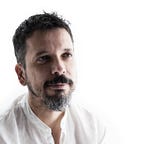From ‘Mentor’ to ‘mentor’, when myth becomes reality
“Mentor’ is a word with a strong emotional impact, capable of arousing indelible memories and deep feelings. When we hear it, we immediately think of the face of a friend, a colleague, a boss, a neighbour, or a grandparent who, in the past, helped us to become what we are today.
Yet not everyone knows that the word ‘mentor’ originated at the dawn of Western culture as “‘Mentor” with a capital “M”. Mentor is one of the characters in Homer’s Odyssey, admittedly much less well known than the Cyclops Polyphemus or the sorceress Circe, but no less important in the plot of the poem.
Greece, three thousand years ago. Ithaca is a small island on which Ulysses reigns. Like dozens of other Achaean kings who have sworn allegiance to Menelaus, Ulysses is preparing to leave for the Trojan War, which will keep him away from his homeland for twenty years.
Who will help his mother, Penelope, make her young son Telemachus a man ready to face the thousand trials of life? Who will teach the boy the art of war and the tricks of politics that a king must know well in a world full of enemies?
Ulysses chooses his friend Mentor, a mature, wise and loyal man, the son of Alcinus, who has fought with the king many times. So far, nothing special, an affectionate father asking a friend for help. But once Ulysses has left, something exceptional happens. Athena herself, the goddess of wisdom and the art of war, comes down to protect the wily hero in all his adventures. Whenever Telemachus is really in trouble, the goddess speaks directly to him, appearing to him in the form of Mentor: human and divine coming together to help a person face life, a task so arduous that it genuinely requires the superpowers of a god.
Over the centuries, the myth of Mentor would inspire philosophers and intellectuals in their search for the secret of knowledge. However, we must wait thousands of years before this character’s name enters reality and everyday language, losing the capital “M”.
This crucial shift took place in England, on the verge of the Industrial Revolution, which would make it the first major world power in modern history. Shortly after 1750, the Oxford English Dictionary included the term ‘mentor’ in the English language, defining it as a ‘wise and trusted advisor who helps a person with little experience’. According to the dictionary, the word had been commonly used since Philip Stanhope IV, Earl of Chesterfield, had used it in his letters to his son ‘on the fine art of becoming a man of the world and a gentleman’.
In one of these letters, the Count had written to his son: “Let me be your mentor, and with your means and knowledge, I promise you, you will go far. You will have to put in, on your part, energy and attention, and I will show you the right goals towards which to direct them.” On another page, worried about the inevitable passing of time, the father advised the young man to take advantage of his suggestions without much qualms: “Here are the decisions you must make and execute on your own once you have lost the friendly care and support of your mentor. Before that happens, use him avidly; absorb, if you can, all his knowledge; and take the prophet’s cloak from him before he goes away.”
Once cleared through customs, the word quickly gave rise to the term indicating what the mentor does, “mentoring”, and the person for whom he does it, “mentee”. The French were not long in finding its equivalent in their language, taking care, as is their custom, not to import foreign neologisms without translating them: “mentoring” became “mentorat” and “mentee”, “mentoré”. The substance, however, does not change: curiosity and interest in a new discipline based on sharing knowledge and experience for the development of the individual is born and spread.
Since the Second World War, mentoring has increasingly found practical applications in every sector, from the corporate world to schools and vocational training, from sporting activities to voluntary work in the non-profit sector. America is leading the way in many fields. Europe follows somewhat more slowly but emphasises the formative rather than the emulative aspects. The examples of great mentors and excellent mentees multiply and forcefully enter the collective consciousness.
It is, for example, well known that the great French fashion designer Christian Dior, founder of the fashion house of the same name, mentored Yves St. Laurent, who joined the fashion house in 1954 and became its artistic director. Laurent recalls: “Dior fascinated me. I couldn’t speak when I was in front of him. He gave me the basis of my art. Whatever happens to me, I will never forget the years I spent by his side”. Perhaps less well-known is that Steve Jobs, founder of Apple, mentored the young Mark Zuckerberg as he started Facebook. When Jobs died in late 2011, Zuckerberg published a touching post on his personal page: “Steve, thank you for being a mentor and a friend. Thank you for showing me that what you build can change the world. I will miss you.”
Different experiences, but united by something extraordinary: the relationship that is established between one who passes on a little of what they have had the good fortune to learn and experience in life to someone else who, in making this little treasure their own, makes it even more precious for those who have entrusted it to them. And perhaps one day, thinking back to those who have helped us, at least a little, to become what we are today, we too will hear words like those said by Alexander the Great when thinking of Aristotle, whom he recognised as a great mentor rather than a mere tutor: “I am indebted to my father for living, but to my teacher for living well.”
